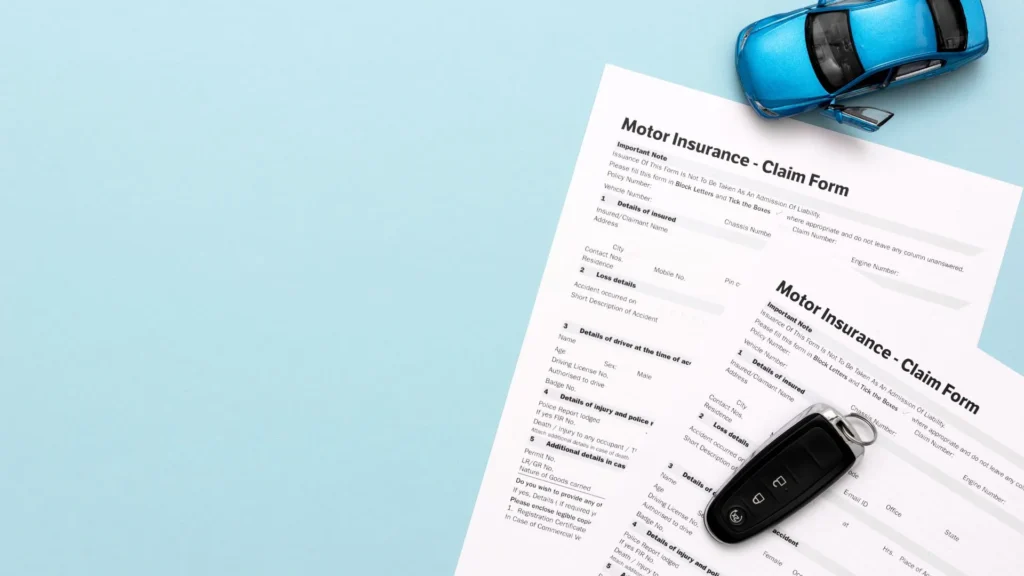Drivers require some level of auto insurance or coverage in almost all states of the United States. However, some exceptions exist where car insurance isn’t required. This blog will introduce you to the states where car insurance is not mandatory. We will also discuss the financial responsibility laws in these states, the pros and cons of living in a state that doesn’t require car insurance, and how to legally drive without car insurance in certain states.
What States Don’t Require Car Insurance?
Only two states do not have mandatory vehicle liability insurance: New Hampshire and Virginia. Driving without insurance is legal in these states, but only for specific categories of drivers. Let’s take a closer look at these states.
New Hampshire
Car liability insurance is optional in New Hampshire, but drivers must have financial responsibility documents. A person must show that they can take care of any costs if they cause an accident with another party while driving their vehicle. The state provides minimum amounts for people who want to buy policies, including bodily injury per person, property damage, bodily injury per accident limits, etc.
Virginia
Just like the case with New Hampshire, Virginia does not make it compulsory to hold an auto insurance policy; however, drivers are required to show evidence of financial responsibility. This means that instead of buying car insurance, drivers in Virginia can opt to pay a $500 Uninsured Motor Vehicle Fee to the Department of Motor Vehicles (DMV).
Nevertheless, the uninsured vehicle fee doesn’t provide any coverage for uninsured motorists, and those who decide against purchasing car protection must demonstrate their financial responsibility. There are also minimum auto insurance requirements for individuals who choose to have auto insurance in Virginia.
Financial Responsibility Laws in States Without Mandatory Car Insurance
In states such as New Hampshire and Virginia, where mandatory car insurance laws do not exist, motorists have to prove they can handle cost issues arising from accidents caused by them. The minimum amount of coverage a driver must purchase varies from state to state to ensure that each driver has enough money to cover potential damage and injury.
The Pros and Cons of Living in a State That Doesn’t Require Car Insurance
Pros:
- Cost Savings: Skipping car insurance may mean immediate savings for drivers with a clean driving record and low-risk profile.
- Freedom of Choice: Drivers can select how they satisfy the financial responsibility requirement.
Cons:
- Financial Risk: An accident, even a minor one, can lead to substantial financial losses. Without insurance coverage, you will be required to pay for all repairs, hospital bills, and legal actions.
- Limited Coverage: Financial responsibility regulations are less comprehensive than car insurance policies. This type of insurance does not cover your vehicle or any liability for injuries you inflict on others.
- Higher Collateral Requirements: The absence of an insurance policy may complicate car rental processes or require a higher deposit.
How to Legally Drive Without Car Insurance in Certain States
- Drivers must prove their financial capability when there is no compulsory auto insurance.
- If it was your fault, your driver’s license can be revoked automatically by going to court or being ordered to carry SR-22 forms.
- The uninsured at-fault drivers for an accident should pay the damages and might get suspended from driving.
- However, these states allow drivers not to have some statutory automobile cover under given circumstances with attached risks.
Alternative Ways to Meet Financial Responsibility Requirements
- Financial Filings: In certain states like New Hampshire, drivers can present financial filings instead of a standard automobile insurance policy.
- Uninsured Motor Vehicle Fee: Drivers in some states like Virginia can pay a fee to the Department of Motor Vehicles instead of buying car coverage.
- Deposit or Bond: Instead of purchasing traditional car insurance, some states offer drivers an alternative to deposit a suitable amount or post-bond with their department.
The Impact of Not Having Mandatory Car Insurance on Accident Rates
- Medical expenses: Medical bills can quickly grow after an accident, especially high-speed collisions and multi-car accidents.
- Vehicle Repairs and Replacements: Consequently, how much a driver has to pay for damages ranges from fixing body panels to total replacement of the other vehicle.
- Property Damages: Subsequently, demolishing property such as street lights or signs will be on you after causing an accident.
- Legal Consequences: Apart from monetary implications, there are also legal consequences for driving without auto insurance that may include fines, license suspension, vehicle impoundment, and even imprisonment.
What Happens After an Accident in a State Without Required Car Insurance?
Here is what happens after an accident occurs in a state that does not require car insurance:
- Fines and Penalties: The penalty for driving without insurance may entail monetary fines, suspension of license, imprisonment, vehicle impounding, and the obligation to file an SR-22 form in case you need to drive legally in the future.
- At-Fault Accidents: Sometimes, when it’s your fault, you must personally bear all costs arising from the accident. These include medical bills, property damage, and legal expenses.
- Not-at-Fault Accidents: Even if one is innocent, a lack of insurance could limit the ability to get compensated for injuries, especially when the wrongdoer lacks enough coverage or none at all.
Comparing Car Insurance Policies in States With and Without Mandates
When comparing car insurance policies between states with and without mandates, it is essential to understand minimum car insurance requirements and how they differ among various states. Here are crucial points to keep in mind:
- All states but Virginia have laws requiring drivers to carry liability insurance if they want to drive legally.
- Some states, such as New Hampshire and South Carolina, have unique rules that allow drivers to meet the minimum requirements using other methods.
- The minimum required coverage varies from state to state, encompassing bodily injury liability, property damage liability, uninsured/underinsured motorist coverage, and personal injury protection.
Conclusion
While the majority of states in the US require drivers to have some level of auto insurance, New Hampshire and Virginia stand out as exceptions where car insurance is not mandatory. It’s essential for residents of these states to understand the laws and regulations governing car insurance and to consider alternative ways to meet financial responsibility requirements.
Additionally, drivers should carefully consider the potential risks and liabilities associated with driving without insurance. Check out Beem to obtain tailored auto insurance quotes from the industry’s top insurance companies and save up to 40% on their desired coverage.




























